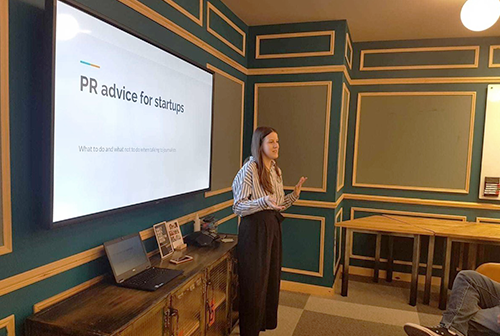Fuelling the future: EVs

There’s increasing demand for sustainable transport, from electric cars and bikes to hydrogen buses and trains. However, of all the new cars registered in 2018, less than 4% were plug-ins. It’s a real challenge for the industry. People say they want electric vehicles (EVs) but they’re still not buying them.
So, what should the automotive industry do about it? Marketing is one piece of the puzzle. But it’s more complicated than that.
Polling shows that the public is more aware of climate change than ever. And the Extinction Rebellion movement shows that there are huge numbers committed to doing something about it. So, you could argue that marketing is doing one of its most important jobs in highlighting the problem.
Now, it’s time for the market to deliver viable solutions.
There have been a raft of developments, enhancements and modifications in EVs. Everything from how batteries are cooled, to better integration of renewables with charging infrastructure and adding charge points to existing urban furniture is being explored. Promisingly, Tesla reported record sales last quarter, but the market still has space to accelerate.
Range anxiety, lack of infrastructure and vehicle choice are all still common complaints. And questions remain over the sustainability of EVs, particularly around cobalt and lithium.
So, while there is a desire for change, there are also obvious areas for improvement:
Infrastructure investment
The UK lags behind the rest of Europe in terms of ability to fast charge. For those unable to charge easily at home, having a near “petrol station” experience is key to encouraging people to make the switch. Essential investment across the country in infrastructure is needed to keep the sector on the right track. Currently, there is a piecemeal approach to charging points. It’s vital, regardless of what vehicle I drive, that I’m able to charge at the next charge point. This investment in the infrastructure also needs to include maintenance so charge points remain functionable.
Financial incentives
Cars aren’t cheap, that’s especially true for electric vehicles which can be a barrier to entry. Coupled with their fledgling status there aren’t many second hand vehicles on the market, further stalling uptake. To break through in the market, incentives need to be given to encourage people to get on board with the EV journey. Norway celebrates high EV uptake due to a strong incentive programme – over 10% of vehicles on the road in Norway are plug-ins – compare this to less than 1% in the UK. While the costs of running an electric car might be cheaper, the upfront cost can be prohibitive.
Shorter lead time for vehicles
Increasing demand needs to be matched with a strong supply of vehicles. This isn’t happening. Long lead-in times of months between order and delivery will also put people off jumping into the driving seat of an electric vehicle. Manufacturers across the spectrum from Bentley to Renault are investing in electric vehicles and building up their supply chains. This is encouraging, but with warnings about battery production capabilities in the UK being raised, more can and should be done.
Transport is the most polluting sector in the UK today, so continued commitments from government and manufacturers will be needed to keep this embryonic sector heading in the right direction. Once these commitments and fundamental improvements have been made the marketing machine can ramp up once again. Effective communication activity, highlighting their value and sustainability credentials, could put EVs in pole position when drivers are making their next vehicle purchase.
But first, we need inventors firing on all cylinders.



















